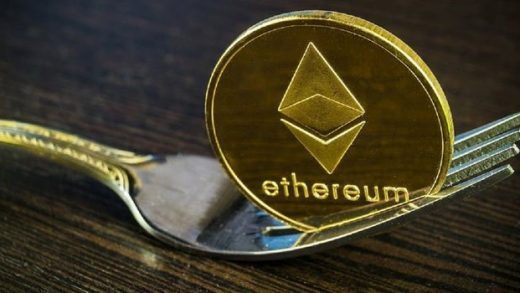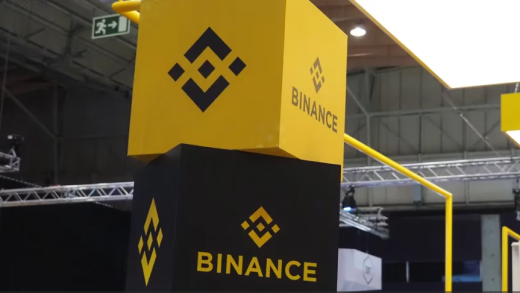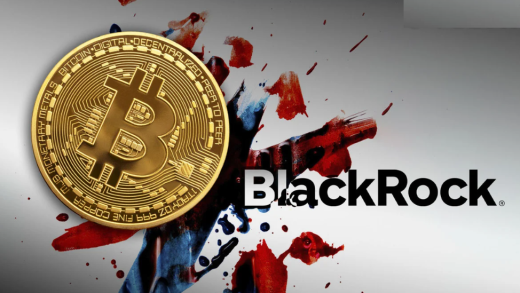-
Monitor SEC Updates: Confirm whether BlackRock secures SEC approval for staking, as unapproved offerings could lead to suspensions or fines, impacting ETF performance.
-
Assess Tax Implications: Staking rewards may be taxed as income, reducing net returns. Consult a tax professional to understand liabilities.
-
Evaluate Custodial Risks: Staking involves locking assets with custodians like Coinbase Custody (ETHA’s custodian). Verify the security of staking infrastructure to avoid losses from hacks or mismanagement.
-
Diversify Exposure: Given the novelty, allocate only a portion of your portfolio to ETHA to mitigate risks from regulatory or market volatility.
Daily Updates on Blockchain, Bitcoin and Ethereum
BlackRock, the world’s largest asset manager, is reportedly exploring staking incentives for its iShares Ethereum Trust (ETHA), a move that could make it the first crypto ETF to reward investors with staking yields. Meanwhile, Donald Trump’s $TRUMP Wallet and meme coin, launched in partnership with Magic Eden, continue to generate buzz as a potential rival to Binance Coin (BNB)’s success. However, both projects raise concerns: the BlackRock ETF’s novel staking feature could face SEC pushback, requiring investor precautions, while $TRUMP’s centralized structure risks resembling a CBDC, potentially undermining Bitcoin’s mass adoption. Short-term bearish pressures in the crypto market further complicate the outlook for both.
BlackRock’s Ethereum ETF: Pioneering Staking with Regulatory Risks
Rumors surfaced on June 3, 2025, via X posts, suggesting BlackRock is considering adding staking to its Ethereum ETF, which launched in July 2024 and has amassed $1.6 billion in assets under management (AUM) [Web ID: 2]. Staking would allow ETHA investors to earn passive income from Ethereum’s proof-of-stake rewards, potentially yielding 3-5% annually, a feature unprecedented among crypto ETFs. This could attract significant capital, mirroring the success of BNB, which grew through utility-driven adoption on Binance’s platform.
BNB’s rise from a $0.15 ICO token in 2017 to a $100 billion market cap at its 2021 peak was driven by its role in reducing trading fees and powering Binance’s ecosystem, including staking on BNB Chain. Similarly, BlackRock’s ETF could boost Ethereum’s adoption by offering institutional and retail investors a regulated way to earn staking rewards, potentially driving ETH’s price and ETF inflows.
Precautions for Investors: As the first crypto ETF with staking incentives, ETHA faces unique risks. The SEC has not explicitly approved staking for ETFs, and past scrutiny of staking programs (e.g., Kraken’s $30 million settlement in 2023 for unregistered staking services) suggests regulatory hurdles [Web ID: 3]. Investors should:
The SEC’s potential disapproval could delay or cancel staking plans, limiting ETHA’s appeal and causing short-term price dips in ETH. Investors should conduct due diligence and stay informed via BlackRock’s official filings.
$TRUMP Wallet: A BNB-Like Contender with CBDC Concerns
In parallel, the $TRUMP Wallet, launched with Magic Eden’s Slingshot platform, aims to onboard “true Trump fans” to crypto through the Solana-based $TRUMP meme coin. Announced on June 3, 2025, the wallet supports trading of $TRUMP, Bitcoin, and other assets, with a $1 million rewards program and airdrops tied to Trump-branded merchandise purchases [Web ID: 1]. The token’s early traction—reaching a $60 billion market cap with 1 million holders, 50% of whom are crypto newcomers—echoes BNB’s community-driven growth.
BNB’s success was fueled by its utility (e.g., fee discounts, Launchpad access) and Binance’s expansion into BNB Chain, making it a multi-purpose token. Similarly, $TRUMP could integrate with TruthFi, Trump’s financial arm, to offer NFT drops, DeFi services, or governance, driving adoption. A deflationary model, like BNB’s quarterly burns, could enhance $TRUMP’s value if implemented.
However, concerns arise about $TRUMP’s centralized structure. SpotOnChain revealed that 80% of the token supply ($3 billion) is held in a creator-controlled multi-signature wallet, with the top five wallets owning over 90% [Web ID: 1]. This concentration, combined with potential KYC requirements via partners like MoonPay, resembles a CBDC’s controlled framework, potentially enabling surveillance or restrictions. Such centralization could divert new users from Bitcoin’s decentralized ethos, slowing its mass adoption as a permissionless alternative to fiat systems.
Short-Term Bearish Risks for the Crypto Market
Both projects face short-term bearish pressures in the crypto market. Meme coins, including $TRUMP, have seen a 4.7% market cap decline, with $TRUMP dropping 77.6% from its high to $16.2 by February 2025 [Web ID: 1]. Trump’s proposed tariffs have further pressured the PolitiFi sector, down 11%. For BlackRock’s ETF, a broader market downturn—evidenced by a 2% drop in ETH’s price last week—could reduce AUM if investor sentiment sours [Web ID: 2]. Technical issues, like Magic Eden’s $ME airdrop errors, highlight risks of execution failures in $TRUMP’s rewards program, potentially triggering sell-offs. Post-airdrop dumps, as seen with $ME’s 54% decline, could further depress $TRUMP’s price.
Conclusion: Balancing Opportunity and Caution
BlackRock’s Ethereum ETF with staking could revolutionize crypto investing, offering BNB-like utility through passive income and institutional credibility. However, its status as the first staking ETF invites SEC scrutiny, necessitating precautions like monitoring regulatory updates and diversifying exposure. Similarly, the $TRUMP Wallet and meme coin hold BNB-like potential to onboard millions through community hype and ecosystem growth, but their centralized structure raises CBDC-like concerns that could hinder Bitcoin’s adoption. Short-term market volatility adds further risks for both. Investors should approach these opportunities with diligence, balancing their bullish potential against regulatory and market uncertainties.












